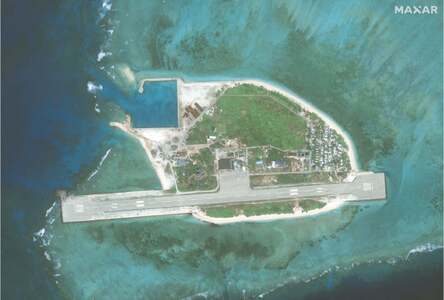BEIJING, Sept 23: China, Russia and four Central Asian republics (CARs) signed agreements on Tuesday to set in motion long-standing plans for a regional anti-terror centre in Uzbekistan.
They also agreed to give the Shanghai Cooperation Organization (SCO) a leading role in boosting economic ties among members China, Russia, Kazakhstan, Kyrghyzstan, Tajikistan and Uzbekistan with the goal of creating a free trade zone.
Moves to found an anti-terror base in a region long a focus of separatist movements opposed to rule by Communist parties gained momentum after the Sept 11, 2001, attacks in New York and Washington.
Plans for the centre have been in the works for years but the SCO, set up seven years ago to solve border disputes and to fight terror, had done little more than discuss the idea until now.
The base will be in the Uzbek capital, Tashkent, but the nature of its role was not clear. The agreements were signed by prime ministers from the six countries.
“I am highly satisfied with the fruits of the meeting. These actions show that the SCO has entered a stage of overall development,” Chinese Premier Wen Jiabao told reporters.
“SCO economic cooperation has now launched on to the main track: this is the biggest result of the meeting.”
Mr Wen proposed the eventual establishment of a free trade zone, the official Xinhua news agency said.
STAGNANT ECONOMIES: The emphasis on enhancing economic links reflected the decline of the threat of terror attacks in the past two years because of the US-led “war on terror” and a greater US presence in the region, said Dru Gladney, an expert on China’s Muslims and Central Asia at the University of Hawaii.
“In the whole region it’s declined since 9/11,” he said, adding that economic health had become a major concern for Central Asia.
“The economies are still stagnating in the area. They are all worried about the economy,” he said.
The leaders signed six documents, including one authorizing the regional anti-terror body and its personnel arrangements and an outline of major points of regional economic cooperation.
The SCO, set up as the Shanghai Five in 1996 to resolve Soviet-era border disputes, admitted Uzbekistan in 2001 and shifted focus to combating militants.
One Western diplomat said the SCO had yet to prove itself as little more than a talking shop and was hard pressed to point to its achievements.
“In terms of what they can achieve, it is still an ongoing process. They haven’t done much,” the diplomat said.
Last month, SCO members held joint military exercises in China in a sign cooperation was increasing.
The anti-terror exercises would help China tighten the noose on ethnic Uighur separatists in its western Xinjiang region that borders Afghanistan and Pakistan as well as Kazakhstan.—Reuters













































Dear visitor, the comments section is undergoing an overhaul and will return soon.